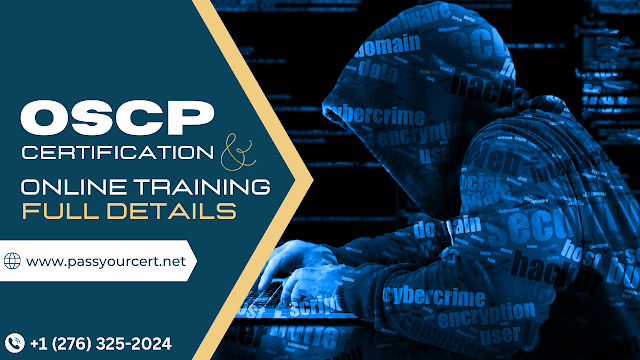Certified Fraud Examiner (CFE) Certification: Your Passport to the World of Fraud Prevention
In a world where deception is more sophisticated than ever, the Certified Fraud Examiner CFE certification stands as a prestigious credential, attracting individuals from all walks of professional life. If you've ever dreamed of delving into the detective-like field of fraud examination, this certification is the gateway to making it a reality. But what does it take to earn this certification? How valuable is it in today’s competitive job market? And, most importantly, is it right for you?
What is the CFE Certification?
The Certified Fraud Examiner (CFE) certification is an esteemed credential awarded by the Association of Certified Fraud Examiners (ACFE). Earning a CFE means you’ve gained knowledge in fraud prevention, detection, and investigation—a trifecta of skills highly sought after in today’s business and government sectors.
Notably, this certification isn’t just about learning the ropes of fraud examination. It's also about ethics, legality, and technical know-how in areas like forensic accounting, fraud schemes, and the legal elements of fraud. With such a well-rounded approach, the CFE certification enables professionals to tackle fraud cases efficiently and with integrity.
Why Pursue a CFE Certification?
Key Advantages of the CFE Certification
You may wonder, “Why should I go through the effort of obtaining a CFE certification?” Quite simply, having “CFE” after your name can open doors that would otherwise remain shut. Here’s why:
Credibility and Trust: CFEs are known for their high ethical standards and expert knowledge, making them trustworthy allies in the fight against fraud.
Enhanced Career Opportunities: From government jobs to corporate sectors, demand for CFEs is skyrocketing.
Specialized Knowledge: The certification provides in-depth knowledge, equipping you to handle complex fraud cases.
Increased Earning Potential: On average, CFEs earn 25% more than their non-certified peers!
CFE Certification Requirements
Like most coveted credentials, the CFE certification comes with a list of prerequisites. But don’t worry—it’s manageable! Here’s a quick breakdown of what you’ll need:
Educational Requirements: A minimum of a bachelor’s degree (or equivalent professional experience).
Relevant Work Experience: At least two years in fields related to fraud prevention, detection, or investigation.
Membership with the ACFE: You must join the Association of Certified Fraud Examiners.
CFE Exam: Passing this challenging exam is the final step.
With these essentials in hand, you’ll be ready to take the next big leap into the fraud prevention arena!
The Exam: Breaking Down the Essentials
Passing the CFE exam is a feat that requires dedication and strategic preparation. The exam itself is divided into four main sections:
Financial Transactions and Fraud Schemes
Law
Investigation
Fraud Prevention and Deterrence
Each section covers a unique set of skills and knowledge, challenging candidates on every facet of fraud examination. So, don’t underestimate it! Studying intensively is a must, as the exam is rigorous and designed to push your analytical skills to the limit.
Tips to Prepare and Ace the CFE Exam
Earning the CFE certification isn't a walk in the park, but with the right approach, you’ll be well on your way to acing the test. Here are some essential study tips:
Make a Study Plan: Spread your study time across the four exam sections, dedicating equal attention to each area.
Practice Questions: Familiarize yourself with the question format to get comfortable with the types of questions asked.
Join a Study Group: Collaborating with other CFE candidates can be a great way to reinforce your understanding.
Take Practice Exams: Time yourself to mimic real exam conditions, which will help manage your pacing during the actual test.
And remember, persistence is key! While the CFE exam is challenging, a consistent study regimen can make all the difference.
Career Paths with a CFE Certification
The CFE certification can significantly enhance your career trajectory, with options in diverse industries, such as:
Law Enforcement: CFEs work alongside police departments to investigate fraud.
Government Agencies: Agencies like the IRS and SEC employ CFEs to prevent financial crimes.
Corporate Sector: Companies hire CFEs to monitor for fraud risks and protect assets.
Consulting: Independent CFEs often offer services to small businesses or organizations without a dedicated fraud department.
Whether you're drawn to public or private sectors, the CFE certification is like a VIP pass to these exclusive career paths.
Financial Benefits and Salary Expectations
One of the biggest motivators for obtaining the CFE certification is the financial reward. On average, CFEs report a 25% higher salary than their non-certified peers. This can mean a significant increase in income, depending on your industry and location. In large corporations, senior-level CFEs often earn six-figure salaries, while consultants can charge premium rates for their expertise.
In fact, the CFE certification pays off over time, allowing you to command higher salaries and negotiate better positions. So, if you’re looking for a certification with tangible monetary benefits, the CFE is worth serious consideration.
Conclusion: Is CFE Certification Right for You?
So, is the CFE certification the perfect choice for you? It’s ideal if you’re passionate about fraud prevention, have an analytical mindset, and are committed to upholding ethical standards. This certification isn’t just an addition to your resume; it’s a commitment to becoming an expert in fraud examination.
With increasing global fraud cases, CFEs are more crucial than ever, making it a highly rewarding career path. If you’re ready to tackle complex fraud cases, protect organizational assets, and build a reputable career, the CFE certification is undoubtedly a solid investment in your future.


%20656-0395%20(3).png)

Comments
Post a Comment